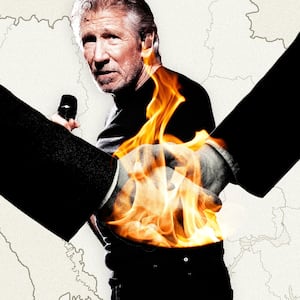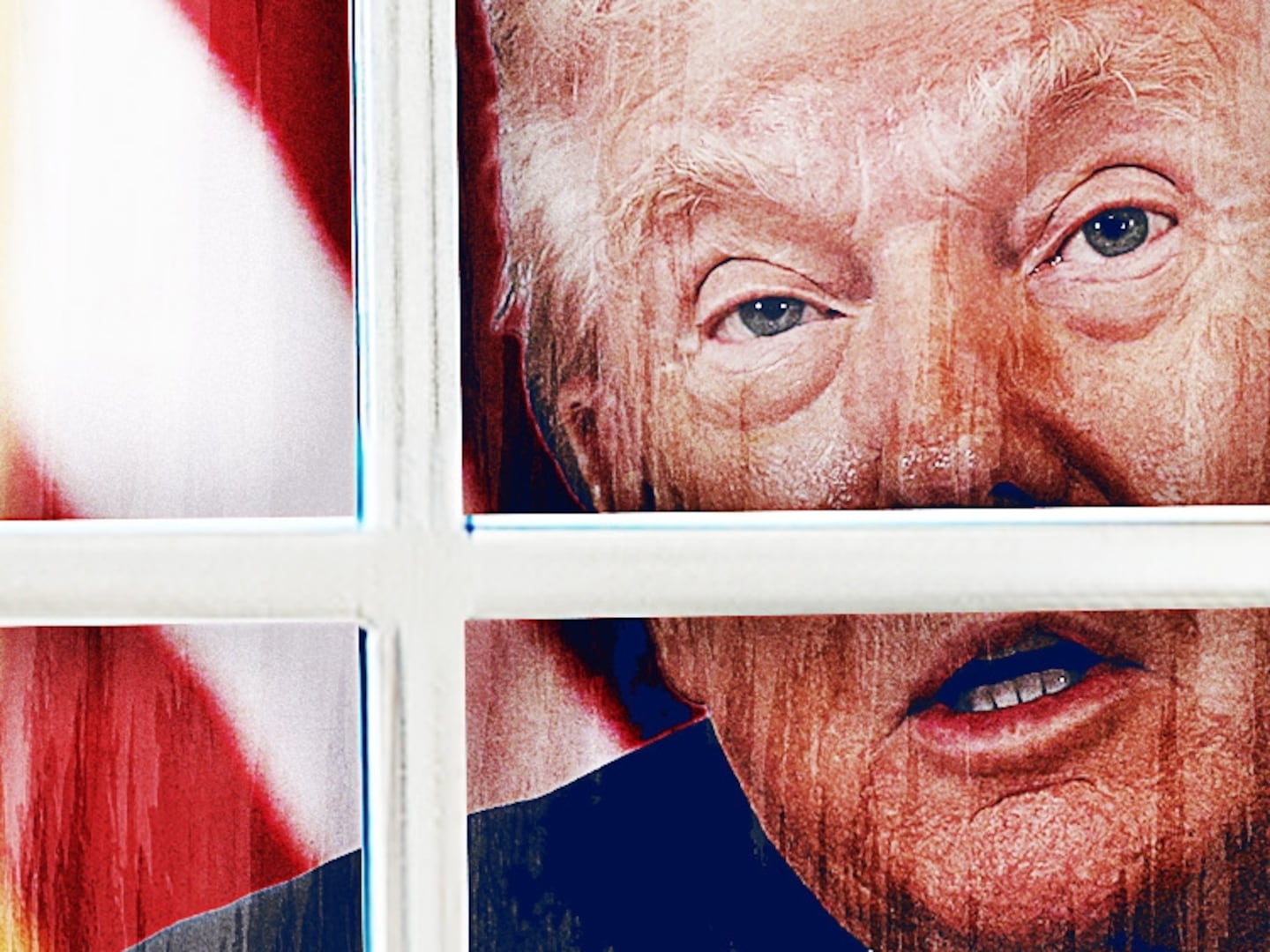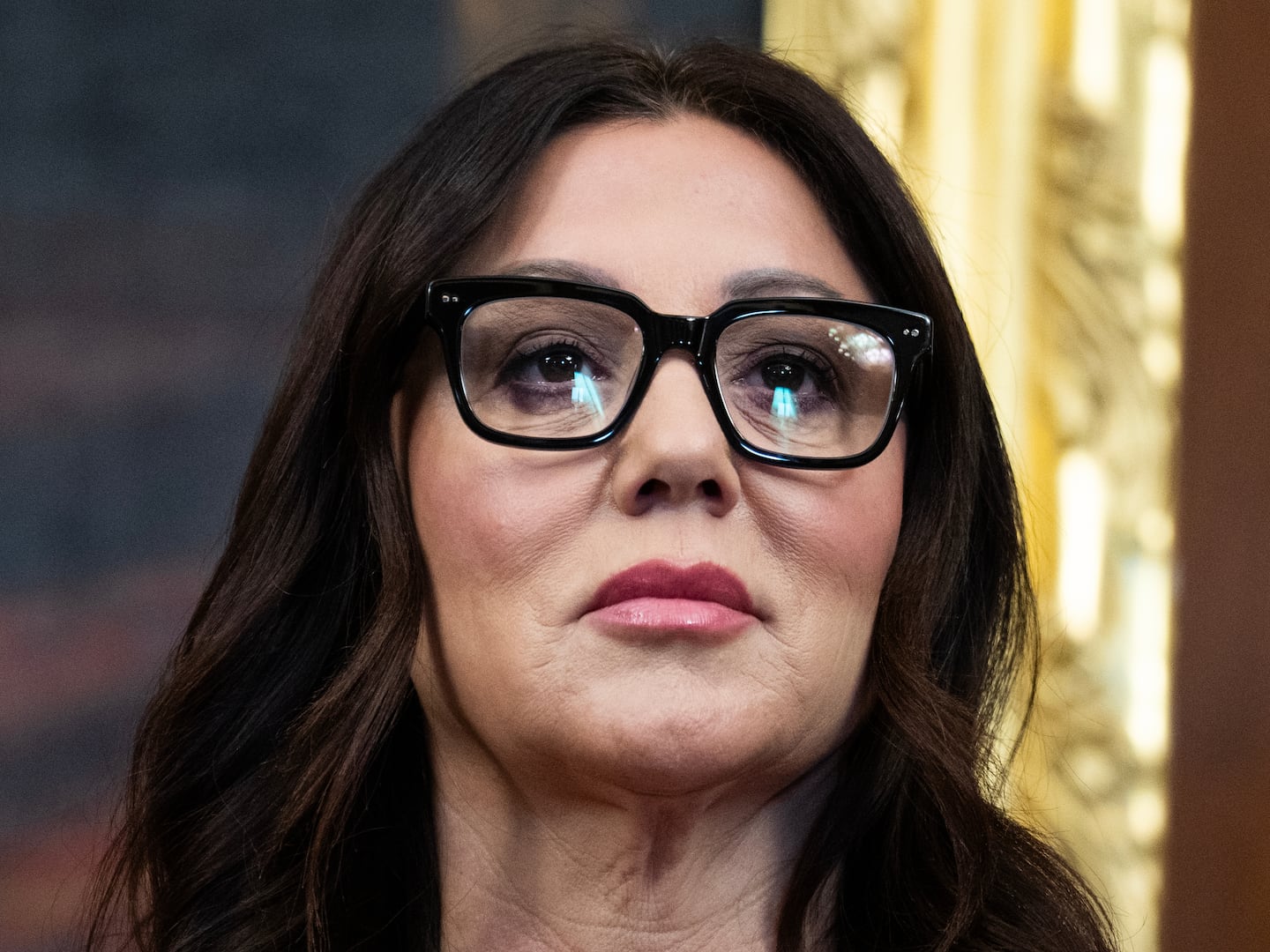Twenty years ago, the Iraq War was starting, and I was protesting it. I joined tens of millions of people the world over in that opposition. Iraq dominated my political life in my early and mid twenties, and the invasion was the worst of George W. Bush’s many terrible acts, in a presidency that must rank as one of the very worst in American history.
For years I labored in the antiwar movement, attending and organizing protests. The anti-imperialist values I had been raised with had suddenly become decidedly non-theoretical. By the late 2000s, when I had given up on antiwar activism due to burnout and the obvious futility of our movement, it left a hole in my schedule and in my sense of self. The war was, in some ways, the organizing principle of my young adulthood. And now, 20 years later, few people remember it—or want to.
The conditions that led to the war are gone, though the military industrial complex it activated lies in wait. The country has moved on from Iraq to the point of erasing it almost completely from our political debates.
Gore Vidal, a voluble critic of the war who died in 2012, called our country “the United States of Amnesia,” and it’s hard not to disagree.
Neoconservatism isn’t dead, but it’s far from the white-hot center of culture war that now animates right-wing politics. The identity fixation that has overtaken the American left leaves little concern for foreign policy; the Trumpian incoherence that defines contemporary conservatism extends to issues of war and peace.

New York City police prepare to arrest a small group of anti-war protesters in front of the New York Stock Exchange, March 19, 2007, in New York City.
Michael Nagle/Getty ImagesThe war cost us at least $3 trillion, ruined America’s credibility for a generation in much of the world, and—at a conservatively estimate—killed 600,000 people. Yet these days you could argue about politics every day for months without ever once bringing it up. It’s politically inert. In many ways, the war is just… gone.
Perhaps it’s worth remembering the context in which the war was born. The past is always a different country, but the difference between the immediate post-9/11 world and today is particularly extreme.
I find it hard to make young adults understand just what the atmosphere was like after the attacks—the mandatory patriotism, the unquestioned militarism, the sense of ambient fear as everyone kept expecting the next big attack. That next big attack never came, which was the proximate cause for why we eventually moved on. But for years, it was a matter of when, not if; that we were certain to be hit again was assumed by all serious people, the lack of evidence for that belief being seen as an irrelevance. The question was not whether we had to harden our defenses and ourselves, but how to do it.
Counterterrorism was an essential part of national political elections for a decade and a half.
The first question of the 2004 presidential debates was about 9/11. Despite being a combat veteran of the Vietnam War who as a senator voted to authorize military action in Iraq, John Kerry’s campaign in that contest struggled mightily to match George W. Bush’s public credibility on the issue. John McCain, Barack Obama’s opponent in the 2008 presidential election, made the “war on terror” central to his sales pitch, harping on his military career and foreign policy experience. In 2012, Mitt Romney bragged that as president he would “double Guantanamo,” whatever that meant.
Concern for terrorism would evaporate from politics both gradually and suddenly—in 2020 there were no questions on the topic in any presidential debate—but for a long while, the immediate defense of the country from terrorism was a national obsession.
Of course, there was another national obsession: revenge.
If we wanted to be particularly naïve, we could ask why the reaction to 9/11 influenced the run-up to the Iraq War, given that none of the hijackers was Iraqi and that no connection between Saddam and Al Qaeda had been found. (Because there was no connection to find.)
But, of course, the national mood that not only permitted the Iraq invasion but made it popular was a post-9/11 mood, a consequence of an attack that had been unthinkable to many Americans.
Most people had been used to walking around with an unexamined sense that the United States just didn’t get attacked, and not for no reason; since the War of 1812 ended there had not been an attack on the mainland of the country of much significance. The two world wars had taken place far from American shores, leaving our country as the only major belligerent in either conflict that did not see significant destruction within its borders. Conflicts like Vietnam brought unpleasant memories, and a bit of shame, but were easily compartmentalized. The various minor skirmishes the country got into in the 1980s and 90s were barely followed by most of the citizenry, and the first war in Iraq had ended in a swift American victory. With the Cold War over, the threat of Russian nukes had been dramatically lowered.
Who would dream of an attack on American soil? The carnage on 9/11 pierced that feeling of invulnerability. And while we rightfully mourned the dead, the country also mourned the vision of America as an impregnable fortress that so many saw as a birthright. National support for invading Iraq, if we’re being honest, had everything to do with that anger.
The war in Afghanistan initially appeared successful; we had no way to know that it would drag on for 20 years at the time. But it had provided little catharsis. The Taliban had mostly dissolved into the mountains and the borderlands, and the fighting was largely anticlimactic, at least compared to the war fervor that was consuming the country. There were no triumphant infantry battles that ended with Americans planting a flag on the corpses of their enemies. Osama bin Laden had inconveniently escaped. Al Qaeda was dealt many blows in those first few years, but they were a small shadowy force that, it turned out, had exploited a particular vulnerability and otherwise had no ability to cause real damage to the American way of life. We needed a target for a more camera-ready war. Luckily for corporate military behemoths like Raytheon, and unluckily for the people of the Middle East, the neoconservatives Bush had packed into his administration already had a designated enemy in mind: Iraq.

A picture released Nov. 23, 2004, by the Multi National Force-Iraq shows members of the Iraqi Special Force (ISF) patrolling along with Marines in the devastated city of Fallujah.
MNF-I/AFP via Getty ImagesIf you’re a proponent of the idea that American foreign policy is primarily driven by the need to maintain access to strategic resources, then Iraq’s large oil reserves (some of the largest in the world) will likely be explanation enough for why we invaded. The fact that the United States had intervened in Kuwait, another country with huge reserves, speaks to that theory.
Some believed that the war was essentially a familial drama, as Bush’s father George H. W. Bush had battled with Saddam Hussein in the Gulf War and Hussein had returned the favor by hiring assassins to kill him. There’s also always the ready-made argument that any given conflict perpetuates the military industrial complex and justifies the defense budget, creating inherent internal pressure for the U.S. military to get into conflict at fairly regular intervals.
All of those theories are correct. But there’s no question that the war was also motivated by a simple, unadulterated desire for revenge. Iraq had not done 9/11, but it didn’t matter much; they were Arabs, and Muslims, and a group of Arab Muslims had humiliated the United States. They were foreign people in a distant culture who practiced an alien religion. It was time for payback.
Thomas Friedman, the longtime New York Times columnist and a prominent supporter of the invasion, infamously said to Charlie Rose that “we needed to go over there, basically, and take out a very big stick right in the heart of that world and burst that bubble… suck on this! That, Charlie, is what this war was about.” Sometimes, they just come out and say the quiet part out loud.
Iraq did indeed suck on it; in addition to the hundreds of thousands dead, millions fled as refugees and Iraqi civil society was essentially destroyed.
But the United States ended up sucking on it too. The trillions of dollars, thousands of lives, and immense amounts of public good will that we burned “over there” were gone forever. The war dogged the Bush administration in its later years, and was largely responsible for broad Republican losses in the 2006 midterm elections. Our imperial hubris, dashed by the continuing anti-American insurgency in the country, looked more and more like a distraction from the country’s internal problems.
This feeling was crystallized in the Hurricane Katrina tragedy, where Bush dithered while thousands died in the streets of a major American city. In time, ISIS would rise in the Iraq-Syria borderlands, which could be used in dictionaries to define the kinds of unintended consequences that the use of military force makes inevitable. The Iraqi government that the United States spent so much blood and treasure establishing persists; it’s undergone years of upheaval, but has now settled into an inoffensive state of massive corruption and petty authoritarianism. (Another unintended consequence of Bush’s war is that it made allies out of longtime blood rivals, Iraq and Iran.) The country’s sectarian conflicts persist. Most of the refugees never came back. The dead are still dead.
In time, the war would come to be seen as a terrible mistake, and by many, a crime. The Obama years, famous for establishing a sense of “normalcy,” helped soothe the national conscience. Donald Trump’s incoherent foreign policy views could not be said to amount to a repudiation of neoconservatism—they could not be said to represent a comprehensible philosophy at all—but his nomination to the Republican ticket in 2016 helped establish that whatever remained of the neoconservative movement that had once dominated the party had entered a period of torpor.
Biden withdrew what remained of American forces from Afghanistan in 2020, after which the Taliban retook the country with almost comical speed. There was a lot of rending of garments over that decision, but the fact that the government collapsed after 20 years of America propping it up made clear that to stay longer would only be to delay the inevitable. We continue to support the brutal theocratic regime in Saudi Arabia as it terrorizes Yemen, but we mostly sate our blood lust vicariously through the war in Ukraine.
It sometimes occurs to me that I should, perhaps, feel a little pride at opposing an evil war that so many other people had supported. We were right, after all, and today very few dispute that. But we were powerless to stop the war, or even to shorten it, in the face of a national demand for revenge and an administration that fused evangelical Christianity and its apocalyptic undertones to the banal academic evil of the neocons.
Iraq started out as a winning issue for the Republicans and became a boon for the Democrats; it strengthened the antiwar perspective and undermined the logic of intervention. Mostly, though, people seem merely to want to move on.
I’m certain that there will be other wars to oppose in my lifetime, and the neocons will rise again, but for now the American military machine slumbers. Somewhere, George W. Bush is painting, and I’m willing to bet his heart is untroubled. I only hope that, when the next war rolls around, Iraq will not be just another part of America’s ancient history.










